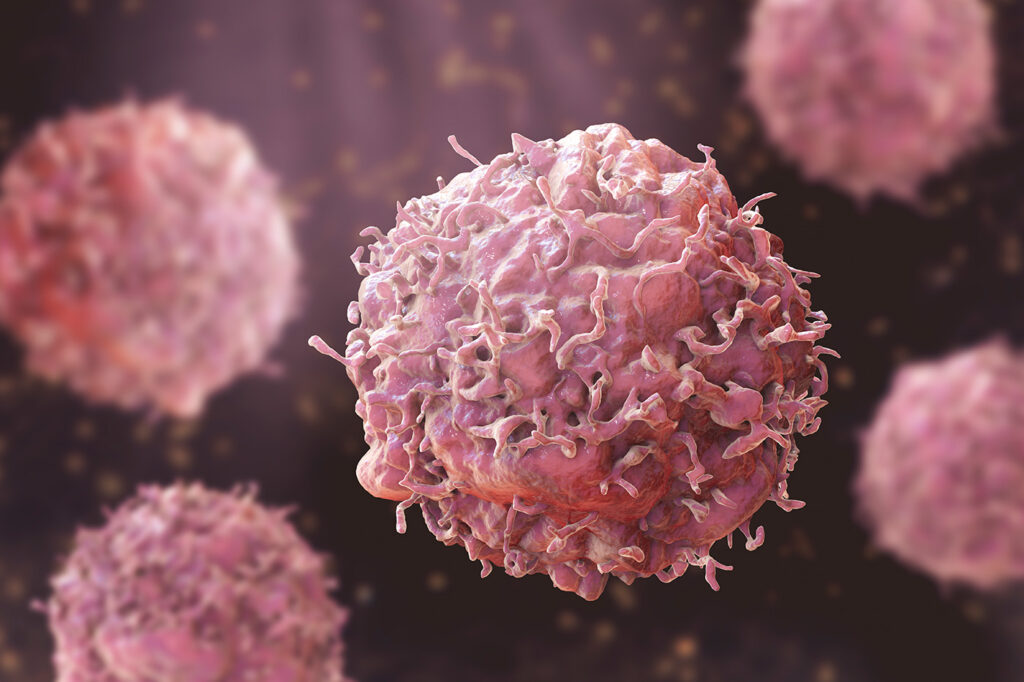Research and development teams across academia and industry have been awarded millions of dollars by a U.S. federal agency specializing in health innovation to create at-home screening kits for cancer.
The Advanced Research Projects Agency for Health (ARPAH) is funding the development of broadly accessible kits that can detect more than 30 cancers at their earliest stages, when the chances of survival are best.
ARPAH’s Platform Optimizing SynBio for Early Intervention and Detection in Oncology (POSEIDON) aims to fundamentally change cancer screening by developing first-in-class, over the counter Multi-Cancer Early Detection (MCED) tests.
The program intends to develop non-invasive synthetic sensors and reporters to reliably detect cancer from as early as stage I in breath and urine samples using a self-administered test that would allow Americans to screen themselves for cancer before experiencing symptoms.
“The field of cancer screening needs a revolution, and POSEIDON stands ready to deliver,” said POSEIDON program manager Ross Uhrich.
“The program allows for a better future by creating broadly accessible, at-home tests that will accurately detect 30+ cancers as early as Stage I, when tumors are still small and the chances of survival are high.
“This revolutionary funding effort brings together experts in synthetic biology, oncology, medical devices, big cancer data, and commercialization to create test kits that will transform how and when people are screened for cancer.”
The kit would be incorporated into digital care workflows, with the results uploaded onto electronic health records where they can be rapidly reviewed by a health professional.
Four organizations are set to benefit from POSEIDON awards after being selected to lead “performer teams,” which will receive milestone-based support to develop the next-generation tests.
UK-based Owlstone Medical Limited, based in Cambridge, is the only organization outside the U.S. to benefit and has been awarded US$49.1 million for the development of a test that detects biomarkers for 36 cancers using a single-use inhaler.

Pan-cancer and tumor-specific synthetic sensors are breathed in and then circulate around the body, where they accumulate on the surface of cancer cells.
The reporters produced by the sensors are either DNA-based—acting as a readable barcode—or are detectable as exogenous volatile organic compounds (EVOC) biomarkers that are collected in urine and breath samples.
“Access to an accurate and low-cost MCED test that does not require a doctor’s visit or laboratory testing is key to preventing late-stage diagnoses,” said Billy Boyle, co-founder and CEO at Owlstone Medical.
“This award validates both breath as a diagnostic approach and Owlstone’s EVOC probes as a reporter technology to overcome the shortcomings and challenges that have held back early cancer detection previously.”
Also benefiting from the POSEIDON awards is Carnegie Mellon University, which is working with its commercial partner Ginkgo Bioworks to develop oral probiotic sensors that will release customized barcodes to detect cancer through urine using a custom chip.
Grafton Biosciences, which remains in stealth mode, is also leading a performer team and aims to use a smartphone assisted detection platform that works with oral and inhalable sensors for urine- and breath-based detection.
The final awardee is SRI International, which aims to develop sensors that will release customized barcodes for urine-based detection.
Currently, recommended cancer screenings in the U.S. only account for four cancer types—breast, cervical, colon, and lung. Commercially available MCED tests often fail to catch Stage 1 solid tumors, with late detection resulting in a poorer prognosis.
ARPAH will invest up to US$147 million over five years through POSEIDON. In addition, two corporate performers have committed to resource sharing of up to US$21 million during its duration.

